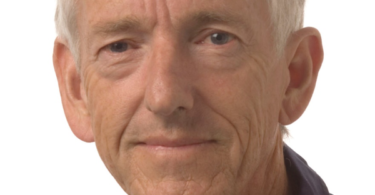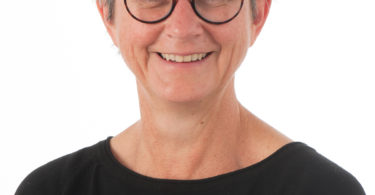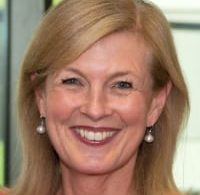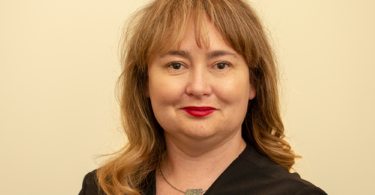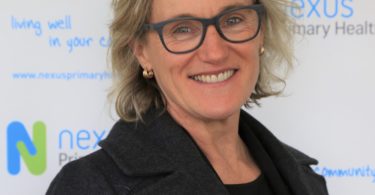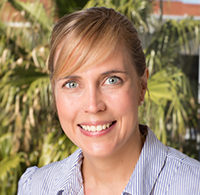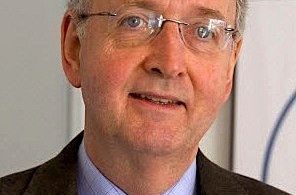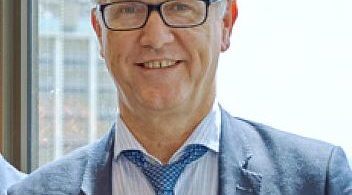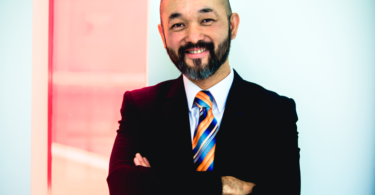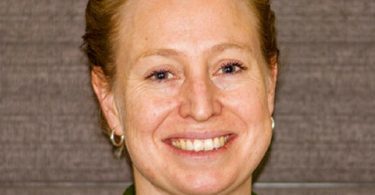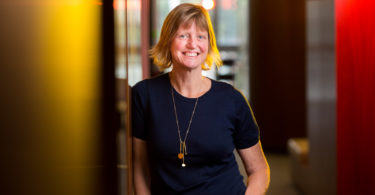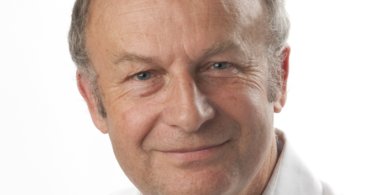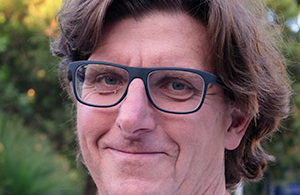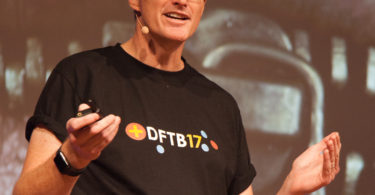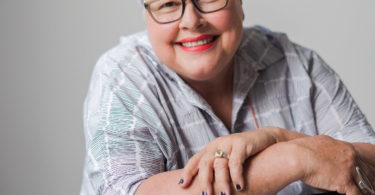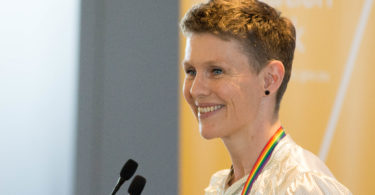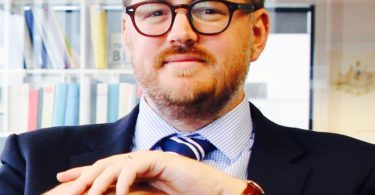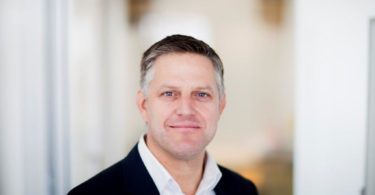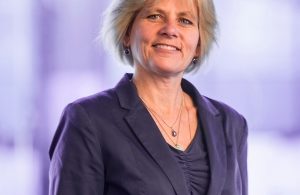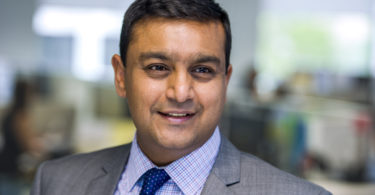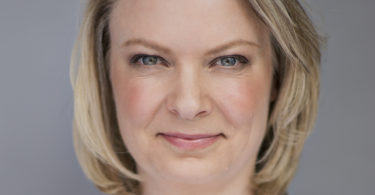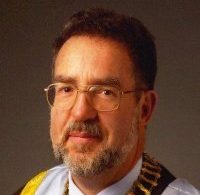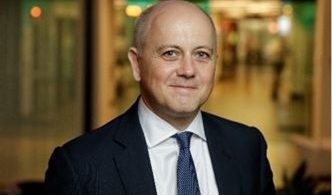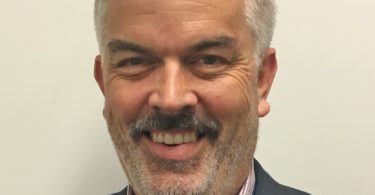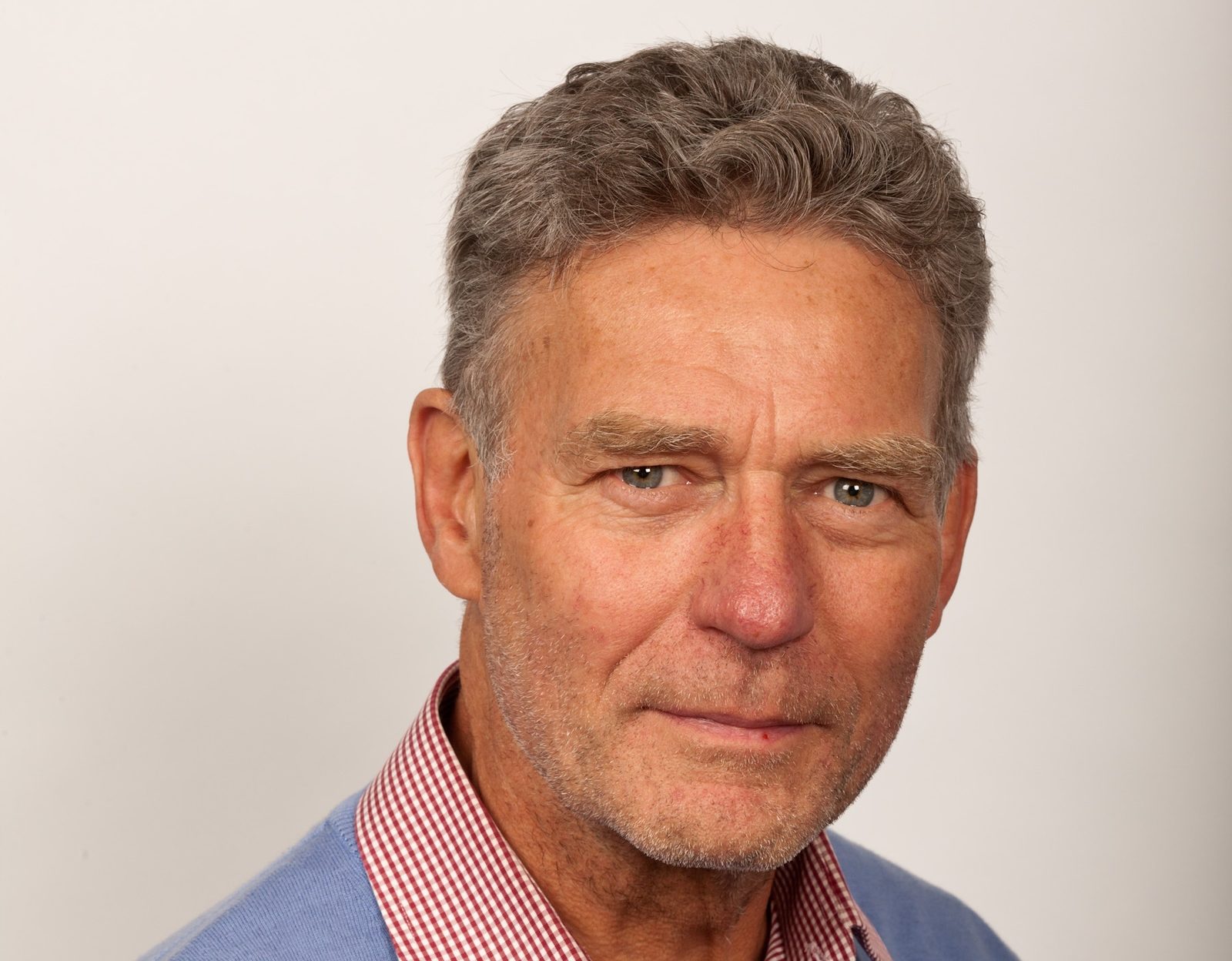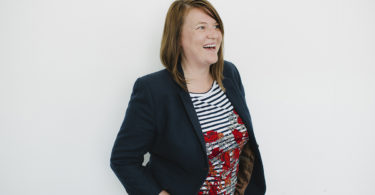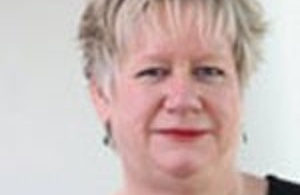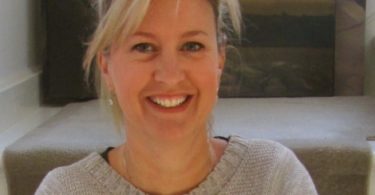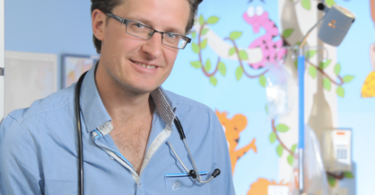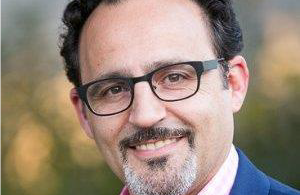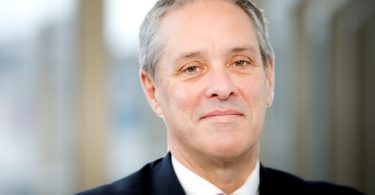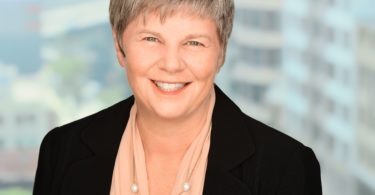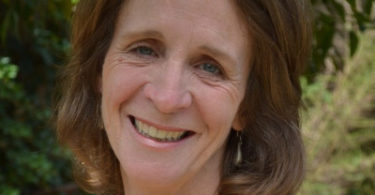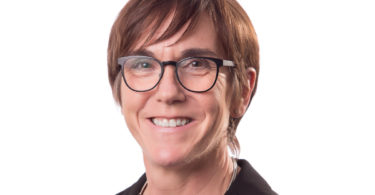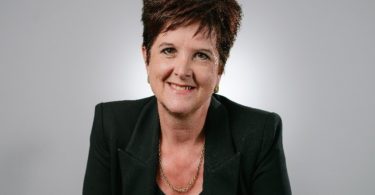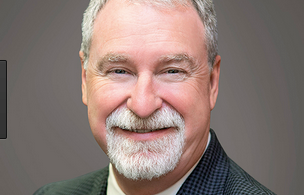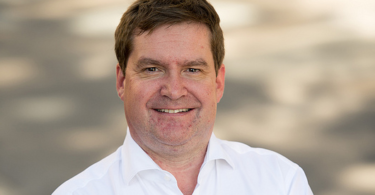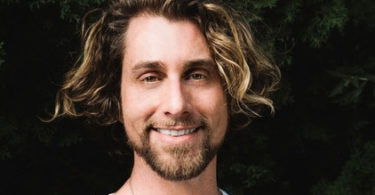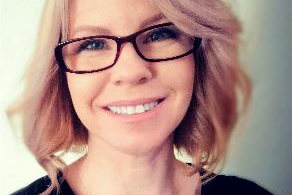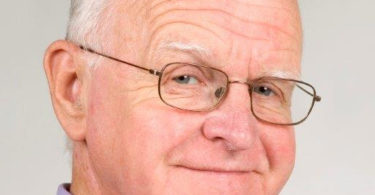A child psychologist by training, Dr. Tim Moore is a Senior Research Fellow at the Centre for Community Child Health at the Murdoch Children’s Research Institute, Melbourne. He heads a small team with responsibility for monitoring, reviewing and synthesising research literature on a wide range of topics relating to child development, family functioning and service systems. He has been the principal writer on numerous Centre for Community Child Health reviews, reports and policy briefs, many of which have had a significant impact on policy and practice, nationally and internationally. Prior to joining CCCH, Tim worked as an educational and developmental psychologist in a variety of settings, including early childhood intervention services for young children with developmental disabilities and their families. He has taken a leading role nationally in the development of policy and training in the early childhood intervention field.
panelist – past event
Rachel Robinson – Manager, Centre for Community Child Health
Rachel Robinson is an evaluation, policy and service development specialist at the Centre for Community Child Health where she has been working with communities to improve the conditions for families raising children since 2007. Rachel is currently working on By Five, an ambitious collaboration in Victoria’s Wimmera Southern Mallee region. By Five aims to create an environment where families have a voice in design of the services they need to thrive in their unique rural and regional communities. Rachel brings to her role considerable experience in federal government and community services and is a passionate volunteer in roles spanning health, education, sport, housing and the arts.
Annie Moulden – Clinical Lead, Victorian Paediatric Clinical Network
Annie Moulden is a General Development and Behavioural Paediatrician. Having commenced working as a Consultant in 1994, Annie has over 25 years of clinical experience as a paediatrician. She studied Medicine at Melbourne University, commenced her paediatric training at the Royal Children’s Hospital (RCH) in 1984 and completed her training in Nottingham, UK. Annie is also a self-described Quality and Safety activist with a long-held passion for improving how we deliver healthcare. She was awarded an Order of Australia Medal (OAM) in 2011 for her contribution to Paediatrics and to Patient Safety. Her previous roles include being the Director of Quality at RCH and the Clinical Director, Innovation and Quality at Monash Health and she is currently the Clinical Lead, Victorian Paediatric Clinical Network and the Medical Lead, Quality & Safety, RCH. She is a past Director of the Latrobe Hospital, Traralgon and Very Special Kids and is currently on the Boards of Children’s Healthcare Australasia and Koala Kids Foundation. Annie is passionate about health care that results in patients and their families receiving excellent clinical care alongside a positive and enabling experience. She works with children and their parents to build resilience and capacity in improving their physical and mental health. Annie has watched with surprise and delight her three children become young adults and spends her free time running, entertaining, being entertained and planning holidays.
Nick Buckmaster – Chair, Consumer Advisory Group, RACP
Nick Buckmaster is a pre-eminent staff physician in General Medicine and Director of General Medicine and Aged Care at the Gold Coast Health Service. He is co-lead of the Integrated Care working group of the RACP. He has a passion for system improvement and believes that changes to our health system configurations are critical to manage the health needs of our population. He has held previous roles in eHealth, IMSANZ and medical workforce in order to further these aims.
Jacqui Gibson-Roos – Community Consumer Advocate
Ms Gibson is passionately committed to developing greater transparency for governance within the healthcare system and retaining a system that is inclusive of all Australians. She has a strong interest in self-management and consumer participation, having worked on a number of programs involving developing strategies to integrate consumer participation into community health programs. Furthermore, she is an active consumer who has been involved in a number of boards and committees as a member, chair and co-chair, including Australia Health Practitioner Regulation Agency’s Community Reference Group, the Australian Medical Council Specialist Education Accreditation Committee, the Australasian College of Emergency Medicine, and the Council of Education.
Suzanne Miller – CEO, Nexus Primary Health
Suzanne Miller is Chief Executive Officer of Nexus Primary Health and Deputy Chair of the Goulburn Regional Partnership for Regional Development Victoria. With a professional background in psychology, she worked in drug user research, youth justice and the public and private education sectors before making the change to rural and regional health in late 2002. Since then, she has been involved in managing regional primary health services and pursing equity of access for people living in rural and regional areas. She holds a Master in Public Health and is a Graduate of the Australian Institute of Company Directors and has a strong interest in the health benefits associated with a connection to nature.
Marie Bismark – Senior Fellow, University of Melbourne
Dr. Marie Bismark is a public health physician and health lawyer, who leads the Law and Public Health Group at the University of Melbourne. Her research focuses on the role of patient voice in improving the quality and safety of healthcare. In 2014, Marie was awarded the Fellows Career Development Fellowship from the Royal Australasian College of Physicians to study the impact of new laws requiring mandatory notification of concerns about the health, performance or conduct of health practitioners in Australia. Marie has previously worked as a doctor in a number of New Zealand hospitals, served as a legal adviser to the New Zealand Health and Disability Commissioner, and been a solicitor with a leading New Zealand law firm. In 2004-2005, she completed a Harkness Fellowship in Health Care Policy at Harvard University, with Professors David Studdert and Troy Brennan, researching alternatives to medical malpractice litigation. In addition to her academic role, Marie serves as a non-executive director on the boards of a number of health sector companies, including GMHBA Health Insurance, Summerset retirement villages, and the Young and Well Cooperative Research Centre. She has published widely on no-fault compensation, patient safety and healthcare complaints resolution. Marie and her husband Matthew have three teenage children.
John McDonough – Professor of Public Health Practice, Harvard T.H. Chan School of Public Health
John E. McDonough, DrPH, MPA is Professor of Public Health Practice in the Department of Health Policy & Management at the Harvard T.H. Chan School of Public Health and Director of the Center for Executive and Continuing Professional Education. In 2010, he was the Joan H. Tisch Distinguished Fellow in Public Health at Hunter College in New York City. Between 2008 and 2010, he served as a Senior Advisor on National Health Reform to the U.S. Senate Committee on Health, Education, Labor and Pensions where he worked on the development and passage of the Affordable Care Act. Between 2003 and 2008, he served as Executive Director of Health Care for All, Massachusetts’ leading consumer health advocacy organization, where he played a key role in passage and implementation of the 2006 Massachusetts health reform law. Between 1998 and 2003, he was an Associate Professor at the Heller School at Brandeis University and a Senior Associate at the Schneider Institute for Health Policy. From 1985 to 1997, he served as a member of the Massachusetts House of Representatives where he co-chaired the Joint Committee on Health Care. His articles have appeared in Health Affairs, the New England Journal of Medicine and other journals. He has written three books, Inside National Health Reform, published in September 2011 by the University of California Press and the Milbank Fund, Experiencing Politics: A Legislator’s Stories of Government and Health Care by the University of California Press and the Milbank Fund in 2000, and Interests, Ideas, and Deregulation: The Fate of Hospital Rate Setting by the University of Michigan Press in 1998. He received a doctorate in public health in 1996 from the School of Public Health at the University of Michigan and a master’s in public administration from the John F. Kennedy School of Government at Harvard in 1990. He blogs regularly at Health Stew, available at:
Neville Board – Chief Digital Health Officer, State of Victoria
Mr. Board is Victoria’s Chief Digital Health Officer and heads the Digital Health Branch. The Branch conducts health sector planning and assurance. The Branch is developing unique identification and clinical information sharing for Victoria health services, and is connecting health services to the My Health Record system. The Branch also leads the Victorian health service cyber security program and ICT operational assurance programs. Prior to coming to Victoria in 2018, Mr. Board headed the eHealth and Medication Safety program at the Australian Commission on Safety and Quality in Health Care. He is also an Adjunct Fellow at Macquarie University’s Institute of Health Innovation. Mr Board is a registered nurse and has worked in clinical, management, and informatics roles, including six years managing leprosy and primary care programs in the Brazilian Amazon. He implemented radiotherapy information systems and area-based clinical cancer registries in NSW and has published on hospital in the home, use of data in health care, short stay surgery and post-acute care.
John Stanway – CEO, The Royal Children’s Hospital
John Stanway was appointed to the role of Chief Executive Officer (CEO) at The Royal Children’s Hospital in April 2017. Prior to commencing in this role, John was the Chief Operating Officer at The Royal Children’s Hospital for more than ten years, overseeing clinical operations. From 2012, John also held the position of Deputy CEO. Before joining The Royal Children’s Hospital, John managed Monash Medical Centre, was Chief Executive of the Transport Accident Commission and held various senior management roles at General Motors Holden. John has a double major in Economics and a Graduate Diploma in Industrial Relations and is a Fellow of the Australian Institute of Company Directors. John was also President of the Victorian Hospitals Industrial Association and Chairman for 10 years. John is currently a Board Director of The Royal Children’s Hospital Foundation, Victorian Comprehensive Cancer Centre Ltd, Murdoch Children’s Research Institute and Children’s Healthcare Australasia.
Erwin Loh – Chief Medical Officer, St. Vincent’s Health Australia
Professor Erwin Loh is national Chief Medical Officer and Group General Manager Clinical Governance for St Vincent’s Health Australia, the nation’s largest not-for-profit health and aged care provider, with 36 facilities, including six public hospitals, nine private hospitals and 17 aged care facilities in Queensland, New South Wales and Victoria, along with three co-located research institutes – the Victor Chang Cardiac Research Institute, the Garvan Institute of Medical Research, and St Vincent’s Institute of Medical Research. He is qualified in both medicine and law, with general and specialist registration as a medical practitioner (medical administration specialty), and a barrister and solicitor of the Supreme Court of Victoria and High Court of Australia. He also has an MBA, Master of Health Service Management, and PhD in management. He is Chair of the Victorian State Committee and Board Member of the Royal Australasian College of Administrators. He is adjunct Clinical Professor at Monash University, where he leads the Clinical Leadership and Management Unit at the Monash Centre for Health Research and Implementation.
Tara Donnelly – interim Chief Digital Officer, NHS England
Tara Donnelly is the interim Chief Digital Officer at NHS England. Tara is on secondment from her role as Chief Executive of the Health Innovation Network, which exists to speed up the best in health and care across south London as its academic health science network, or AHSN. She has led the Health Innovation Network for over three years and remains accountable officer, she is also a non-executive director at the Nuffield Trust, a leading health policy think tank. Tara has an extensive background in leadership roles within the NHS and the voluntary and community sector. She has a long-term passion for improvement and the potential of digital in healthcare and has spent the past 18 years at board level including at University College London Hospitals NHS Foundation Trust, as a non-executive director at Macmillan Cancer Support, as Chief Executive at the West Middlesex University Hospital and as Deputy Chief Executive and Director of Operations at the Whittington Hospital. She has worked in the NHS for 30 years with her first role being as a Ward Housekeeper when she was 18. As Chief Digital Officer at NHS England, Tara leads the strategy for citizen facing digital services to ensure people are empowered to manage their health care using digital services which meet their needs, target prevention and offer a personalised experience. She is SRO for the Empower the Person pillar, part the NHS’ Digital Transformation Portfolio. This is one of the most ambitious digital healthcare transformation portfolios in the world and its flagship programmes include the NHS website (nhs.uk), the NHS App, NHS login (verification of citizen’s identity), NHS Apps Library, Personal Health Records and Digital Standards, Digital Child Health, Digital Maternity, Widening Digital Participation, GP online services, and ensuring access to WiFi across the NHS estate.
Claire Hepper – GP & Co-founder “Shannon’s Bridge”
Dr. Claire Hepper is a GP working and living in Creswick, Victoria, where she was born and raised. Her father, Brian, was a solo GP, working and living in Creswick for the past 43 years, and the inspiration for the “cradle-to-grave and beyond” continuity of community compassionate approach that Claire aspires to deliver. Her passion is assisting patients with understanding their options for end-of-life care and promoting the patient as being ‘the captain of their own ship’. Claire and Dr. Allison O’Neill worked with Jeremy and Belinda McKnight to found “Shannon’s Bridge” in 2016, a charity named in honour of Jeremy and Belinda’s 19 year old daughter Shannon who died at home in regional Victoria in May 2016. Shannon’s Bridge is a not-for-profit volunteer-run organisation which helps connect patients and families with services and supports at end of life. Where there is a geographical or temporal gap in those services, Shannon’s Bridge upskills community members to support the family and reduce unplanned readmissions to hospital. In 2018, Shannon’s Bridge received its funding from Victorian Government DHHS, under the Ancillary Palliative Care Services Grant program, enabling them to work in more areas across Victoria. Shannon’s Bridge is now also working in collaboration with the federal caring@home project to help health services teach carers how to administer subcutaneous medications in terminal care. By following the Compassionate Community approach, Dr. Claire helps communities negotiate a crisis and then advocating for structures to be put in place to avoid a future crisis. Shannon’s Bridge has been working throughout Australia to support the model of ‘bridging the gap’ between formal and informal health services. She is also on the Board of Palliative Care Victoria and part of the Clinical Advisory Committee for Palliative Care Australia. She has a special interest in palliative care, advanced care planning, aged care, beer and the Celtic Football Club.
Jennifer Philip – Professor of Palliative Medicine, Dep’t of Medicine, University of Melbourne
Professor Jennifer Philip is the appointed Chair of Palliative Medicine, University of Melbourne, St. Vincent’s Hospital and the Victorian Comprehensive Cancer Centre. Jenny is a palliative care clinician, researcher and teacher whose particular areas of interest include improving the ways supportive and palliative care are delivered. She has extensive international credentials in academic and clinical research in palliative care. As Chair of Palliative Medicine, Professor Philip works to improve patient access to clinical research studies, build research capability and ensure all care provided to people with advanced disease is informed by evidence and delivered by people who are well-trained, supported, compassionate and passionate about what they do. She also heads the VCCC Palliative Medicine Research Group.
Charlie Corke – Deputy Chair of the Voluntary Assisted Dying Review Board
Charlie is one of Australia’s leading Intensive Care Specialists and is immediate past President of the College of Intensive Care of Australia and New Zealand. Charlie undertook medical training at St Bartholomew’s hospital in London. He completed training as a physician and then trained as an anaesthesist. Finally, he completed a third specialty program and commenced a career in intensive care. After working in Hong Kong, Charlie came to Australia, initially working as Director of Intensive Care at the Repatriation Hospital in Melbourne. In 1991, he became Director of Intensive Care in Geelong. In 2008, he stepped down as Director to concentrate more on his diverse medical interests. Charlie is regional clinical lead for the Advance Care Planning program and is the originator of the MyValues approach to advance care planning (www.myvalues.org.au). He is immediate past President of the Collehe of Intensive Care Medicine of Australia and New Zealand – and is Deputy Chair of the Voluntary Assisted Dying Review Board. He lectures widely on medical communication and end-of-life decision-making. Charlie was featured on the ABC in the film ‘In the End’ and is a regular contributor to radio. He is author of ‘Letting Go’ published by Scribe and is a strong advocate of patient-centred care.
Geoff Toogood – Cardiologist & Campaign Founder of “Crazy Socks 4 Docs”
Dr. Geoff Toogood is a Cardiologist & specialist consulting Aviation Cardiologist who has practiced for 20 years on the Mornington Peninsula. He has held The Director of Cardiology position at Frankston Hospital and is a Fellow of the College of Physicians, Cardiac Society and the prestigious Heart Rhythm Society. He is trained and skilled in all aspects of device therapy and follow up. Geoff established the pacing services on the Mornington Peninsula, inserting the first pacemakers (this also applies to ICD and CRT devices), and has run the pacemaker clinic since 1993. He is a Speaker / Ambassador for Beyond Blue, speaking regularly in the area of mental health, and a passionate advocate for doctors’ mental health.
Andrew Tagg – Emergency Physician & Co-founder “Don’t Forget The Bubbles”
Andrew Tagg qualified from medical school in the UK before heading over to Australia the slow way, as a cruise ship doctor. Now working in Melbourne’s west as an emergency physician, he looks after patients from their first days through to their last. Having experienced the darker side of medical culture, he became determined to help drive change. Since speaking out about his own issues with mental ill health and depression, he has been proud to be involved with Western Health’s Positive Workforce group, engaging clinicians at a local and national level. He is also co-founder of Don’t Forget The Bubbles, a paediatric educational resource, that has gained global acclaim, both through its website and its innovative and engaging conferences.
Mary Freer – Principal, Freerthinking
In 2016, following the successful creation of Change Day Australia, Mary launched Compassion Lab, a space where leaders can practice together to uncover compassion in their organisations, their teams, and themselves. The link between innovation, creativity, workplace safety and compassion is now well researched – Mary’s work unpacks what this means for individuals and organisations. Mary is a Westpac Bicentennial Foundation Social Change Fellow, a Member of the Australian Compassion Council, a TEDx speaker and a Coach at Seth Godin’s altMBA. Mary is regularly sought after as a keynote speaker, executive coach and advisor on cultural change and compassionate leadership. You can find out more about Mary at or follow her on Twitter @FreerMary.
Sam Hannah-Rankin – Acting Executive Director for Public Sector Reform, Dep’t of Premier & Cabinet, Victoria
Sam Hannah-Rankin is the Acting Executive Director for Public Sector Reform in the Department of Premier and Cabinet, a division that includes the Behavioural Insights Unit, the Victorian Centre for Data Insights, the Innovation Network and the Public Sector Innovation Fund. Sam specialises in driving change in mature organisations, and has held senior executive roles in strategy, corporate development, risk management and operations at Australia Post, Bendigo Bank and Fairfax Digital. She has also worked as a management consultant across both the public and private sectors.
Adrian Mills – Partner for Creative, Brand & Media, Deloitte Australia
Adrian is a partner in the Creative, Brand & Media business at Deloitte. The business is structured to supercharge creative problem-solving capabilities across the entire firm. Underpinned by Deloitte’s deep industry and technical knowledge, the new practice is designed to deliver efficient, powerful and authentic engagements in areas that include behaviour change and human experience across multiple sectors including healthcare. Prior to Deloitte, Adrian was Managing Director of the highly decorated McCann Melbourne, recipient of multiple Agency of the Year titles at some of the world’s most prestigious creative award festivals. Adrian’s involvement in behaviour change includes the most engaged campaign of all time, “Dumb Ways to Die”, and other globally recognised work such as responsible gambling, technology in hospitals and social etiquette. All up, he has been recognised over 700 times at global and local award shows and also has judged at the Cannes Lions Festival of Creativity, New York Festivals and for the World Advertising Research Centre.
Simon Bell – Professor of Marketing, University of Melbourne
Simon is Professor of Marketing and Head of School of MSPACE – the Melbourne School of Professional and Continuing Education. He is also a Fellow of the Judge Business School at Cambridge University where he was previously a faculty member. He holds an honours degree in economics and completed his PhD in marketing at the University of Melbourne. Simon has worked extensively with industry in a research, consulting, and executive education capacity. He has worked with organisations locally and abroad including PWC, Honda, Royal Mail, Rolls Royce, Agricultural Bank of China, and IBM. He has delivered executive education courses for Cambridge University, Duke Corporate Education, and Melbourne University. Simon writes and consults on a range of issues including frontline employee performance, customer education and loyalty, and service innovation. His research has focused on the services, healthcare, and retail industries and has been published in leading journals such as the Harvard Business Reviewand Sloan Management Review. Simon also sits on a number of editorial boards and is aFellow of the Australian Marketing Institute (AMI).
Charles Abraham – Professor of Psychology Applied to Health, University of Exeter Medical School
Professor Charles Abraham was recently named one of the top 100 practicing scientists in the UK by the Science Council. He was especially noted for his contribution to training and supervision in health psychology. Charles is a behavioural scientist and practising health psychologist (registered by the UK Health Professionals Council). In addition to research and teaching, he provides training, consultancy and policy advice. Charles is a visiting professor at the universities of Sussex, Nottingham and Maastricht and a Research Associate at the Center for Health, Intervention, and Prevention (CHIP) at the University of Connecticut. Professor Abraham has recently joined the faculty at the Melbourne School of Psychological Sciences in the Faculty of Medicine, Dentistry & Health Sciences at the University of Melbourne. He was the founding Chair of the British Psychological Society, Division of Health Psychology and has worked as a research consultant to the Department of Health in the UK. He was a member of the National Institute for Health and Clinical Excellence (NICE) group which developed the 2007 guidelines on Behaviour Change practice and is a member of the group that will extend this guidance in 2013. He was Special Advisor to the House of Lords Select Committee on Science and Technology during their 2010/11 inquiry into the role of behaviour change in government policy development and implementation. He also co-chairs the Athena Swan (AS) working group in the University of Exeter Medical School and serves on the university’s AS committee. Charles’ research focuses on the design, evaluation and implementation of evidence-based behaviour change interventions. His research at the University of Exeter contributes mainly to the research theme of “translational medicine, personalised healthcare and public health” but also to the “climate change and sustainable futures” theme. He has a strong interest in developing evidence-based behaviour change interventions that have the potential to generate population-level changes.
Andrew Wilson – Chief Medical Officer for the State of Victoria
Associate Professor Andrew Wilson is the Chief Medical Officer for Victoria. Spanning a successful career in clinical medicine, Andrew continues to practise as an interventional cardiologist at St Vincent’s Health Melbourne and throughout rural Victoria. He has previously worked at Stanford University Medical Centre and was a NHMRC Research Fellow at Stanford University focusing on translational research in atherosclerosis. The role of the Chief Medical Officer is to develop ways to strengthen hospital management and systems. He ensures that Victorian hospitals and Safer Care Victoria have the right systems, governance and processes in place to support clinicians to deliver high-quality, safe care. Andrew works closely with the Chief Nurse and Midwifery Officer and the Chief Paramedic Officer to provide professional leadership and clinical advice to Safer Care Victoria, the Minister for Health, the Department of Health and Human Services and the wider health sector to ensure a joint focus on quality and safety.
Kira Leeb – Executive Director, Health & System Performance Reporting, VAHI
Kira Leeb is the Executive Director, Health and System Performance Reporting at the Victorian Agency for Health Information (VAHI). Prior to coming to VAHI, Kira held several progressive positions within Canada, all related to health and system performance reporting. Kira began her career at the Canadian Institute for Health Information in 2000 where she was responsible for the production of serial and specialised reports on Canada’s healthcare system. For the past 7 years, Kira led CIHI’s health system performance reporting initiative that included strengthening pan-Canadian health system performance improvement efforts through data, indicator development and analysis. Kira also led the development of a country-wide acute care patient experience survey that is being implemented in multiple jurisdictions in Canada. From 2006–2008, Kira was seconded to the Health Council of Canada where she supported the Council’s mandate to report on health care renewal. Kira holds a MA in Psychology.
Mike Roberts – Managing Director, UCLPartners Academic Health Science Networks
Professor Mike Roberts is Managing Director, UCLPartners Academic Health Science Networks (“AHSN”) and is part of UCLPartners’ senior leadership team. Mike has wide experience of working across primary, community and secondary care to improve patient-centred care. He has been Director of a number of programmes at UCLPartners since 2011, prior to becoming Managing Director of UCLPartners AHSN in 2019. He is an Integrated Care Respiratory Physician at Princess Alexandra NHS Trust, Professor of Medical Education for Clinical Practice at Queen Mary University of London, and Deputy Director at NIHR Applied Research Collaboration North Thames. He is also Associate Director Clinical Effectiveness and Evaluation for the Royal College of Physicians of London. In the course of his role with UCLPartners, Mike has supported the delivery of a number of population health initiatives including the Health 1000 programme in outer north east London and the Atrial Fibrillation (“AF”) and Medicines Optimisation programmes in north central London, and mid and south Essex. Mike has wide experience of working across primary, community and secondary care to improve patient centred care. Mike has been Clinical Lead for the National Chronic Obstructive Pulmonary Disease audit programme since 2000 and led the European programme in 2010-2011. He is Associate Director Clinical Effectiveness and Evaluation for the Royal College of Physicians of London.
Raj Verma – Director Clinical Program Design and Implementation, NSW Agency for Clinical Innovation
Raj Verma has been involved in working with clinicians, managers, executives and patients in improving health systems since 1995. Raj has delivered many large scale projects through structured project management, significant stakeholder engagement and a focus on deliverables and results. Raj has worked to improve the efficiency and effectiveness of healthcare services through new models of care at almost every point of the patient journey. These include models of emergency care, redesigning hospital in the home services, integrated care, safe clinical handover, improving patient and staff experience and creating the NSW Patient Experience Survey. He has been involved in running and sponsoring the NSW Centre for Healthcare Redesign Diploma Program (Redesign School) since its inception in 2007. Raj gained his initial clinical experience working as a hospital medical laboratory scientist at Royal Darwin Hospital. Raj is passionate about service improvement and innovation.
Zoe Wainer – Chair of the Board, DHSV
Dr. Wainer is the Head of Public Health at Bupa, Chair of the Board of Dental Health Services Victoria, and has just completed a secondment to the Department of Prime Minister and Cabinet. She has a clinical background in cardiothoracic surgery and surgical oncology as well has public health and health administration. She has been actively engaged with and implanting the principles of value-based healthcare throughout her various roles, in particular in her role as Chair of the Board of DHSV, which, as a statewide public oral health service, is in the process of implementing Value-based Healthcare as a new clinical and operating model.
David Rankin – Clinical Director, Medibank Private
Dr. David Rankin is an experienced healthcare executive who has worked in the public, private and government sectors in Australia and New Zealand. He is the Clinical Director at Medibank Private, involved in transforming Australia’s largest health insurer into an intelligent purchaser of health services. He has held a range of positions from Chief Executive of a large private surgical hospital, General Manager with New Zealand’s Accident Compensation Corporation, senior health advisor to the Ministry of Social Development and EDMS at a tertiary hospital. David has been elected to a range of senior industry positions including President of the New Zealand Private Hospitals Association, President of the New Zealand Institute of Health Managers and President of the Royal Australasian College of Medical Administrators. David has a passion for enhancing the quality of health services through building positive relationships and clinical accountability.
Norman Swan – Producer and presenter of the Health Report
Producer and presenter of the Health Report, Dr Norman Swan, is a multi-award winning producer and broadcaster. Dr Swan’s career has been highlighted by his desire to keep the Australian public informed of health developments as they happen. This allows him to combine medical expertise with investigative reporting, clear analysis and the knowledge to report the latest research in health and medicine. One of the first medically qualified journalists in Australia, Dr Swan is highly regarded by the medical and health professions. Born in Scotland, he graduated in medicine from the University of Aberdeen and later obtained his postgraduate qualifications in Paediatrics in the United Kingdom. Joining the ABC in 1982, Dr Swan has won numerous awards for his work on RN. Dr Swan was named Australian Radio Producer of the Year in 1984 and was awarded a Gold Citation in the United National Media Peace Prizes for his radio work. He has won three Walkley National Awards for Australian journalism and in 1989 he was given Australia’s top prize for Science Journalism, the Michael Daly Award. A famous example of Dr Swan’s work is his much publicised and controversial investigative program on scientific fraud and the well-known gynaecologist Dr William McBride. The program exposed fraudulent research, sending shock waves throughout the medical world and led to Dr William McBride being de-registered. It earned Dr Swan the 1988 Australian Writers’ Guild Award for best documentary and a Gold Walkley. In addition to the Health Report, Dr Swan appears on local ABC radio. He also presents the popular Health Minutes on ABC Newsradio each week. Norman edits his own newsletter, The Choice Health Reader, which is published in association with the Australian Consumers Association. On television, Dr Swan has hosted ABC Television’s science program Quantum, and been a guest reporter on the ABC Television current affairs program Four Corners. He created, wrote and narrated a four part series on disease and civilisation, Invisible Enemies, made for Channel 4 (UK) and SBS Television. This has been shown in 27 countries. He also co-wrote and narrated The Opposite Sex, a four part series for ABC Television. Norman Swan is known outside Australia. He was the Australian correspondent for the Journal of the American Medical Association and has consulted for the World Health Organisation in Geneva.
Tim Kelsey – CEO Australian Digital Health Agency
Before he was appointed CEO of Australian Digital Health Agency, Tim’s previous role was the Strategy and Commercial Director at Telstra Health. Prior to that, he was National Director for Patients and Information in NHS England – a role which combined the functions of chief technology and information officer with responsibility for patient and public participation. He was chair of the National Information Board and led development of ‘Personalised Health and Care 2020’ – a framework for implementation of a modern information revolution in the NHS in the UK. In 2012, he served as the British government’s first Executive Director of Transparency and Open Data. Tim was co-founder and CEO of Dr. Foster Intelligence that was launched in 2000, a company which pioneered publication of patient outcomes in healthcare. Telstra Health bought Dr. Foster in 2015. Tim was a trustee of the Nuffield Trust, a leading health policy think tank, until 2015. He was also appointed visiting professor at the Institute for Global Health Innovation at Imperial College, London in November 2015. He was named a “Reformer of the Year” by the Think Tank Reform in 2012 and “One of the 500 Most Influential People in the United Kingdom” in 2014 by the Sunday Times. Before Dr. Foster, Tim held various news editor, investigative and television reporter roles, among them for the Independent and The Sunday Times, as well as Channel 4 and the BBC.
Kieran Halloran – Mental Health Services Manager, Eastern Melbourne PHN
Kieran Halloran is a social worker who has worked in community mental health and disability services in Victoria for more than two decades. He has been drawn to working at the growing edges of the sector and has specialised in practice that seeks better outcomes for people who have multiple complex service needs. Partners in Recovery has been an exciting national initiative and with consortia of local agencies, consumers and carers and Kieran has led the direction of the 3 large PIR services associated with Eastern Melbourne PHN. North East Melbourne PHN has been rolling into the NDIS over the last 12 months and Kieran and his PIR colleagues are working to put in place the steps needed to prepare up to 1000 PIR consumers to transition constructively to individualised NDIS plans.
Michael West – Professor of Organizational Psychology, Lancaster University Management School
Michael West is Senior Fellow at the King’s Fund, London and Professor of Organizational Psychology at Lancaster University Management School. The focus of his research over 30 years has been culture and leadership in organisations, team and organizational innovation and effectiveness, particularly in relation to the organization of health services. He also lectures widely both nationally and internationally about the results of his research and solutions for developing effective and innovative health care organizations. Michael graduated from the University of Wales in 1973 and received his PhD in 1977. He has authored, edited or co-edited 20 books and has published over 200 articles for scientific and practitioner publications, as well as chapters in scholarly books. Currently, he is also the Visiting Professor at University College, Dublin and Emeritus Professor at Aston University where he was formerly Executive Dean of Aston Business School. He is a Fellow of the British Psychological Society, the American Psychological Association (APA), the APA Society for Industrial/Organizational Psychology, the International Association of Applied Psychologists, the British Academy of Management, the Academy of Social Sciences and a Chartered Fellow of the Chartered Institute of Personnel and Development. From 2009 to 2013, Professor West led the Department of Health Policy Research Programme into cultures of quality and safety in the NHS in England. He also led the NHS National Staff Survey development and implementation for eight years and has built an unparalleled evidence base. He provides regular policy advice to many national NHS organisations.
Helen Dickinson – School of Business, UNSW
Helen Dickinson - School of Business, University of New South Wales
Anne Skordis – Expert Advisor NDIA
Expert Advisor NDIA
Nicholas Gruen – CEO Lateral Economics
Nicholas Gruen is a widely published policy economist, entrepreneur and commentator on our economy, society and innovation. He is CEO of Lateral Economics, Adjunct Professor at UTS Business School, Chair of Peach Financial the Open Knowledge Foundation (Australia). He is Patron of the Australian Digital Alliance, comprising Australia’s libraries, universities, and providers of digital infrastructure such as Google and Yahoo. He was a Council Member of the National Library of Australia (2014-16), chaired the Federal Government’s Innovation Australia (2013-14) and chaired The Australian Centre for Social Innovation (TACSI) (2010-16). He chaired successful San Francisco based data analytics crowdsourcing platform Kaggle.com and is an investor in numerous Australian and international start-ups. He has advised Cabinet Ministers, sat on Australia’s Productivity Commission (then Industry Commission and founded Lateral Economics and Peach Financial. He has had regular columns in various daily papers and published numerous essays on political, economic and cultural matters. In 2009 he chaired Australia’s internationally acclaimed Government 2.0 Taskforce.
Kathryn North – Director Murdoch Children’s Research Institute
Professor Kathryn North AM is Director of the Murdoch Children’s Research Institute and the David Danks Professor of Child Health Research at the University of Melbourne. Professor North is trained as a physician, neurologist and clinical geneticist and in 1994, was awarded a doctorate for research in neurogenetics. She completed a postdoctoral fellowship in the Harvard Genetics Program. Professor North is a national and international leader in Genomic medicine. In 2014, Professor North was appointed as Co-Chair of the Global Alliance for Genomics and Health – a collaborative network of over 400 organisations across over 45 countries funded by the NIH and the Wellcome Trust (genomicsandhealth.org). Commencing in 2016, she leads an NHMRC-funded national network of over 40 institutions – the Australian Genomics Health Alliance (AGHA). The goal of AGHA is to provide evidence and practical strategies for the implementation of genomic medicine in the Australian health system. Professor North has received a number of awards including the GSK Australia Award for Research Excellence (2011), the Ramaciotti Medal for Excellence in Biomedical Research (2012) and Member of the Order of Australia (AM) for service to medicine in the field of neuromuscular and neurogenetics research (2012). In 2012, Professor North was appointed Chair of the National Health and Medical Research Council Research Committee and in 2014 was appointed as a Foundation fellow of the Australian Academy of Health and Medical Science. She chairs the International Advisory Board of the Great Ormond Street Institute of Child Health (UK) and is a member of the Board of the Victorian Comprehensive Cancer Centre.
Natalie Anderson – Ambulatory Rehabilitation Barwon Health
Natalie has over 25 years’ experience in public healthcare and currently works as the Program Manager for Ambulatory Rehabilitation at Barwon Health. Natalie has a range of interests in health and is passionate about consumer driven care and the role of innovation and assistive technology to improve the lives of people living with disability. She believes that improving equity and access to ‘next practice’ healthcare, is achieved by building systems that use the principles of universal design – where the user’s experience is fundamental to design and the consumer view is central to decision making from the word go. Having trained and worked as a Speech Pathologist for 15 years Natalie’s has remained particularly interested in building better systems around communication access for people with communication support needs either as a result of disability or reduced health literacy. Founder of the Barwon Health Communicative Access Advisory group, Natalie has developed and delivered communicative access training in a variety of settings over many years including most recently at Deakin University School of Medicine. Natalie is currently responsible for a number of programs that have transitioned to NDIS and so brings some learnings with regards to the health-disability interface and the challenges therein. Outside of the health world Natalie is a practicing artist with work in public and private collections. She is represented by a small number of regional galleries and lives to paint.
David Tickell – Ballarat Health Services
Dr. David Tickell trained at the University of Melbourne and then specialised at Royal Children’s Hospital in Melbourne. He completed the end of his speciality training in Albury-Wodonga then moved to Malawi, Africa, before returning to Australia. David has been in Ballarat for the last 9 years, having taken over the Head of Paediatrics in mid-2013 and opting for a ‘tree change’, with a permanent move to Ballarat with the entire family 4 years ago. He has recently taken on the daunting role of Clinical Director Specialist Clinics, Women’s & Children’s Health and, for the last few years, has presided as the Chair of the Senior Medical Staff Engagement committee for Ballarat Health Services.
Jason Micallef – University of Melbourne
Jason has 24 years of industry experience in clinical education, health leadership and organizational development. Jason commenced his career as a Registered Nurse and is currently the University of Melbourne’s Research, Innovation and Commercialisation (RIC) custom education lead for the health sector. In 2007, he established a leadership institute within the Department of Health WA. Through his work in WA, Jason designed and developed a range of successful leadership development initiatives and programs whilst also delivering extensive system improvements by commissioning over 600 service improvement projects in corporate and clinical settings. Jason also led one of Australia’s most sustained medical engagement and medical leadership initiatives over the past decade, which has supported the development of over 500 doctors. Furthermore, Jason has developed a broad range of organisational development initiatives including the use of organisational diagnostics to develop service-wide strategies that create collective leadership and improved staff engagement. Jason is dedicated to developing innovative and evidence-based initiatives that support health services to engage with their clinicians in order to develop capable leaders and better service outcomes.
Andrew Stripp – CEO Monash Health
Andrew has extensive experience in executive roles in a variety of hospitals and health care settings. Within the State Government’s Department of Health and Human Services as the Director for the State’s mental health system, as Regional Director for Health, Housing and Community Services and as Director of Strategy. Andrew was appointed Chief Executive of Monash Health in 2016, and, prior to that, worked at Alfred Health for 12 years as Deputy Chief Executive & Chief Operating Officer.
Christine Jorm – University of Sydney
Associate Professor Christine Jorm is an academic with doctorates in neuropharmacology and sociology. She worked as an anaesthetist for more than 15 years before her interest in quality assurance led to full-time cross-disciplinary work in patient safety and quality including for the Australian Commission on Safety and Quality in Healthcare. Her book ‘Reconstructing Medical Practice – Engagement, Professionalism and Critical Relationships in Health Care’ suggested that doctors’ delicate self-esteem, collegiate relationships and cherished connections with patients reduce their ability to admit to error or engage with the system. It argues that regulation is a clumsy and limited approach to ensuring good care but detailed attention to organisational relationships can rebuild safe and satisfying practice. Christine has broad interests, her publication areas include: medical culture, organisational culture, clinician engagement, safety and quality, clinical handover, root cause analysis, open disclosure, narrative in education, health information literacy, use of smart phones in healthcare, peer assessment, professionalism, rules and regulation, simulation, evaluation of educational programs, measurement of health care quality and use of routine data to improve care, infection control practice (video-reflexive ethnography) and interprofessional education and practice.
Susan Biggar – National Engagement Advisor at AHPRA
National Engagement Advisor at AHPRA
Mei Krishnasamy – Chair in Cancer Nursing, University of Melbourne
Department of Nursing/School of Health Sciences, University of Melbourne
Carrie Marr – CEO Clinical Excellence Commission, NSW
CEO Clinical Excellence Commission, NSW
Andrew Way – CEO Alfred Health
CEO of Alfred Health since 2009.
Euan M Wallace – CEO Safer Care Victoria, Victoria
Inaugural Chief Executive Officer of Safer Care Victoria.
Matiu Bush – Senior Strategist, Business Innovation, Bolton Clarke
Board member of Better Care Victoria and the Emerging Leaders Clinical Advisory Committee.
Liat Watson – Consumer Consultant
Australian healthcare consumer consultant and past Chair of the RCH Melbourne’s Family Advisory Council.
Bill Runciman – Professor of Patient Safety, University of South Australia
Professor of Patient Safety, University of South Australia.


